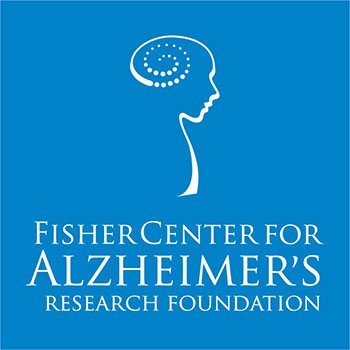
January 23, 2017
New York, New York, January 23, 2017 – Today, the Fisher Center for Alzheimer’s Research Foundation is proud to announce they have funded an important study that could lead to the development of effective drugs that may prevent the onset of Alzheimer’s disease. This groundbreaking research was conducted by the Fisher Center scientists at The Rockefeller University, led by Nobel Laureate Dr. Paul Greengard, in the quest to find a cure for Alzheimer’s disease.
Fisher Center scientists have linked a mutation that protects elderly people from developing Alzheimer’s disease with the effect of Gleevec, an FDA approved anti-cancer drug. As published in the scientific journal Proceedings of the National Academy of Sciences, under the direction of Dr. Greengard and spearheaded by Drs. Bill Netzer and Victor Bustos, they further discovered that Gleevec and a related compound mimic the effects of the protective mutations and thus can act as models for the development of effective drugs to fight Alzheimer’s disease.
The cellular process responsible for the mutation’s protective effect was also identified, which suggests that drugs targeting this process or pathway also might provide protection against the development of Alzheimer’s disease.
“Four approved drugs are currently used to treat Alzheimer’s cognitive symptoms and these drugs produce modest, temporary benefits at best and do not prevent or delay worsening of the disease,” said Nobel Laureate Dr. Paul Greengard, Director of The Fisher Center for Alzheimer’s Research. “This new finding opens the doors for new treatments that may actually prevent Alzheimer’s disease from developing, which would drastically decrease the number of people affected by the disease.”
In a previous study conducted by the Fisher Center scientists, they discovered that Gleevec lowers Aβ levels through indirect inhibition of γ-secretase activity. In the current study, they report that Gleevec also achieves its Aβ-lowering effects through an additional cellular mechanism. It renders APP less susceptible to proteolysis by BACE without inhibiting BACE enzymatic activity or the processing of other BACE substrates.
“This study further confirms that treatment with drugs that indirectly modulate BACE processing of APP but spare other BACE substrates while achieving therapeutic concentrations in the brain might be effective in preventing or delaying the onset of AD and could be safer than nonselective BACE inhibitor drugs,” said Dr. Victor Bustos, Senior Research Associate at the Fisher Center for Alzheimer’s Research at The Rockefeller University.
“As a direct result of the funding support we provide to the Fisher Center for Alzheimer’s Research at The Rockefeller University, the lab has identified an effective treatment model for preventing Alzheimer’s disease,” said Kent L. Karosen, President/CEO Fisher Center for Alzheimer’s Research Foundation. “Our lab at The Rockefeller University is on the cutting edge of science and we are pleased to fund their breakthrough research in our quest to find a cure for Alzheimer’s.”
About the Fisher Center for Alzheimer’s Research Foundation
Led by President and CEO, Kent L. Karosen, the Foundation was established in 1995 by Zachary Fisher to primarily fund the work of the scientists at the Fisher Center for Alzheimer’s Research at The Rockefeller University. The Foundation has received the exceptional 4-Star rating from Charity Navigator for the sixth consecutive year.
The Fisher Center at The Rockefeller University is one of the largest and most modern facilities in the world dedicated to solving the puzzle of Alzheimer’s, and is considered by many to be a prototype for Alzheimer’s research. The Center is led by Nobel Laureate Dr. Paul Greengard, recipient of multiple awards and honors throughout his career, and includes a research team of over 50 world-renowned scientists. To learn more about the Fisher Center’s innovative research, go to www.ALZinfo.org.
About The Rockefeller University
The Rockefeller University is the world’s leading biomedical research university and is dedicated to conducting innovative, high-quality research to improve the understanding of life for the benefit of humanity. Our 79 laboratories conduct research in neuroscience, immunology, biochemistry, genomics, and many other areas, and a community of 1,800 faculty, students, postdocs, technicians, clinicians, and administrative personnel work on our 14-acre Manhattan campus. Our unique approach to science has led to some of the world’s most revolutionary and transformative contributions to biology and medicine. During Rockefeller’s 115-year history, 24 of our scientists have won Nobel Prizes, 21 have won Albert Lasker Medical Research Awards, and 20 have garnered the National Medal of Science, the highest science award given by the United States.
Contact: the Fisher Center for Alzheimer’s Research Foundation
800-259-4636
info@alzinfo.org











